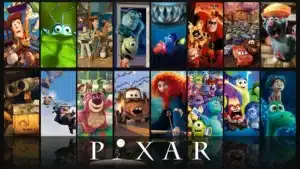The author of the Emperor of Gladness, Ocean Vuong, is a Vietnamese American poet and novelist. He was born as Vinh Quoc Vuong in 1988 in Vietnam. Then Vinh (Ocean) and his mother immigrated to the US when he was just two years old. She supported the family by working several odd jobs. At one point, she was a nail tech at a salon, and a customer had inspired her to re-name her son Ocean.
Ocean’s Literary Leanings
Ocean attended school while growing up in Hartford, Connecticut. After high school, he attended Pace University, then he later transferred to Brooklyn College, where he received a BA in 19th Century American Literature. In 2016, he earned an MFA in poetry from New York University.
Poetry and Novels Before The Emperor of Gladness
The Ocean has published several books of poetry. His poems often use themes of love, loss, transformation, and sometimes violence. He also touches upon different cultures and being queer. His two collections of poetry are Night Sky with Exit Wounds and Time Is a Mother, published in 2016 and 2022, respectively. His first novel, On Earth We’re Briefly Gorgeous, was published in 2019.
It was partially autobiographical and was on the New York Times best-selling list. The novel also won the New England Book Award for fiction and the Mark Twain American Voice in Literature award. Ocean Vuong just published his second novel, The Emperor of Gladness. The story is about a troubled, Vietnamese American teenager who forms a bond with an elderly Lithuanian woman who is battling dementia. It takes place in the fictitious town of East Gladness, Connecticut.
The Emperor of Gladness: Underlying Themes
The protagonist of the novel is Hai. He has been battling his demons of depression and drug addiction. The story starts off with Hai contemplating a jump from a high bridge into a dark river. He is interrupted by an elderly woman, Grazina, yelling from the riverbank. Grazina implores him to stop and come down.
To her relief (and ultimately his), he comes down from the bridge and the two form a friendship. He finds himself helping and taking care of her the same way he would his grandmother. The novel touches upon Hai being a hard-working immigrant, mental health themes, and finally, to Grazina and her worsening condition.
Though often times depressing, The Emperor of Gladness leaves us with small instances of humor and understated wisdom. It can be challenging for a novelist not to write about a character’s positive (or negative) transformation, but Vuong tackles it well. His prose often elicits a poetic sense, and the Los Angeles Times calls his book both “magnificent and melancholy.”
If you’re in the mood for a beautifully written book examining a troubled individual’s daily life and his newfound friendship, you’ll like The Emperor of Gladness. Ocean Vuong certainly has a fresh and different perspective on love, loss, and life.








